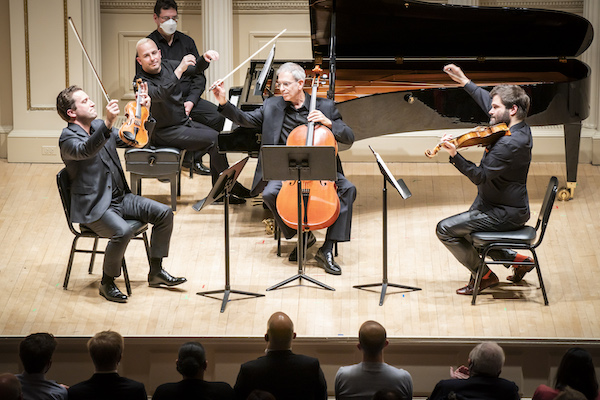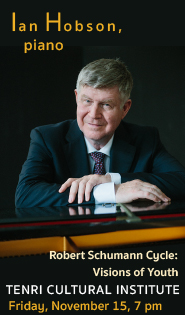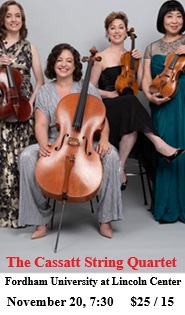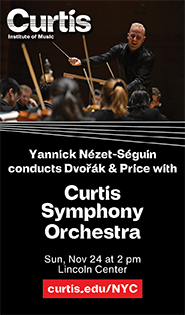Met Orchestra concerts return, downsized yet with captivating joy

Met Orchestra appearances have been a staple of Carnegie Hall seasons for many past years, and are now returning this season, but in pieces.
The concerts are now coming from the Met Chamber Ensemble, which played Sunday night in Weill Recital Hall. The ensemble is not just one group, but musicians for the orchestra coming together in different configurations to play chamber music. That’s an innocuous innovation; a subtle but important one is that the program choices largely come from the musicians themselves. As explained by the ensemble, a committee of orchestra members plans the repertoire “in collaboration with Met administration and staff.”
That, of course, means that Metropolitan Opera music director Yannick Nézet-Séguin has some input. He also appeared Sunday, conducting a medium-size group in two arias from Matthew Aucoin’s upcoming Eurydice (sung by soprano Liv Redpath, who is covering the title role) as well as taking the keyboard part in music of Mozart and Florence Price.
The trio of flutist Chelsea Knox, violist Milan Milisavljevíc, and bassist Leigh Mesh played Erwin Schulhoff’s Concertino. The composer was a great modernist who is infrequently played, but there never seems to be a bad performance of his work. It’s clear musicians are drawn to his music.
And why not? His balance of classical structure, modes, folk music and jazz (and even atonality), his rhythmic vitality (even at slow tempos), and the shape of his melodies and forms, are superb. The Concertino is intelligent and elegant, and as expressed by these players is fecund with natural, musical feeling. Everything sounded like a song coming from the musicians, except the fast second and final movements, which felt like a dance. There was such immediacy in the performance that one was captivated, deep in the communal feeling of music making, almost forgetting that this was a public concert, with separation between stage and audience, and protocols of introduction.
One had the same experience with Price’s two short duos, The Deserted Garden and Adoration, and Récreation by Pierre Gabaye. Nézet-Séguin introduced violinist Jeremias Sergiani-Velázquez, the Met’s principal second violinist, as the orchestra’s newest member. The pair delivered the songfulness and moving expression of Price’s music, for the most part just stepping out of the way to let her melodies and sophisticated harmonic motion speak, while also making as beautiful a sound as possible. The violinist played with phrasing that had the underpinning of inhalation and exhalation, the same naturalness one heard in the Concertino.
The performance of Gabaye’s rollicking quartet, for the unusual combination of trumpet, trombone, horn, and piano, had this same quality. Récreation is Parisian to the max, jaunty as anything, the sound of streetcars, city lights, silent movies, and people just having a good time. The performance had a relaxed polish, a musical magnetism one finds more often in jazz clubs than on the stages at Carnegie Hall.
In this context, the arias “There was a roar” and “Orpheus never liked words” were more of an attractive curiosity than an involving experience. One got to hear Aucoin’s style and orchestration—polished and straightforward harmonies, touches of minimalism, an emphasis on tuned percussion and a slightly brittle texture—and a hint of playwright Sarah Ruhl’s libretto. The arias are from Eurydice’s point of view, in the first she tries to remember what happened to her as she passes into the underworld, the second an intriguing complaint about being married to an artist. Redpath’s singing was strong and emotive, but the lack of larger context made for a distance between performers and listeners that was absent in the other pieces. There was a sense of obligation, even a bit of advertising, in having this on the program.
As with the arias, the performance of Mozart’s Piano Quartet in G Minor, K. 478 was a bit of a letdown after the sheer listening pleasure of the Price and Gabaye. Part of this was the gap between the string players and Nézet-Séguin’s workmanlike rendition of the piano part, dutifully articulating all the notes but displaying less verve and no poetry compared to the strings.
The performances of music by Schulhoff, Price and Gabaye, were stellar, pure joy, presenting a stark dichotomy in the program between music that comes from the bottom up, chosen by the players, rather than from the top down.
The Met Chamber Ensemble plays Strauss, Janáček, Bach and more, 7:30 p.m. January 24, in Weill Recital Hall carnegiehall.org


